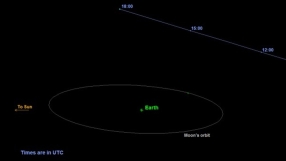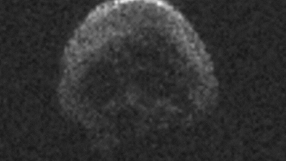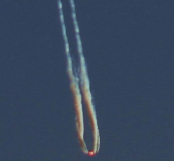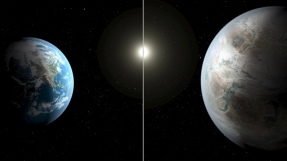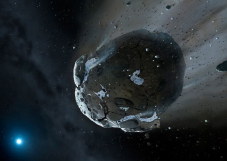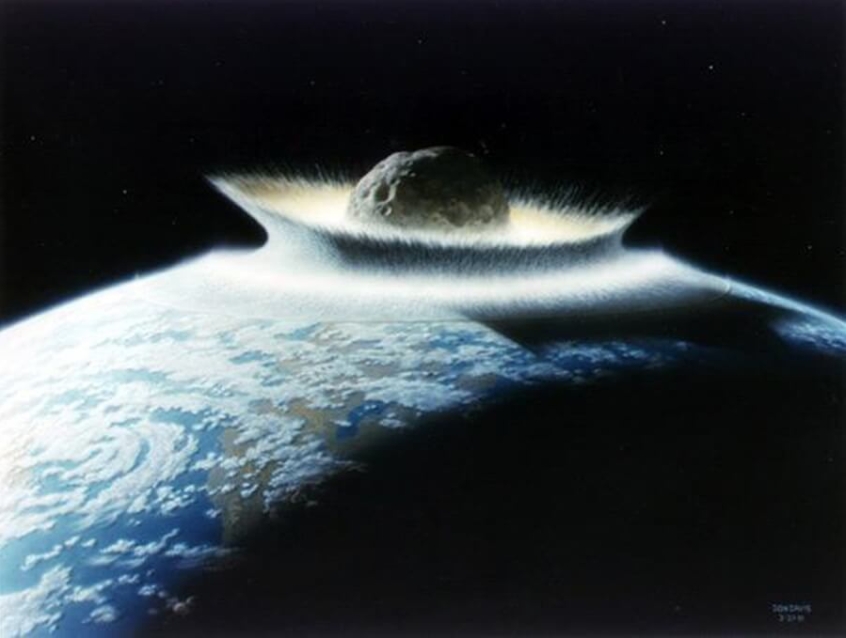
A massive asteroid called Apophis could hit and destroy Earth on April 13, 2036, U.S. and Russian scientists have warned.
"There is a chance in 2036 [that Apophis will hit Earth]," Donald Yeomans, head of NASA's Near-Earth Object Program Office, recently told LiveScience.com.
The Russian news agency Sputnik earlier quoted Russian space scientist Leonid Sokolov from the St. Petersburg State University as saying that Apophis is likely to approach Earth at a distance of 37,000-38,000 kilometres in 2029.
Seven years later after that—on April 13, 2036—the asteroid may be on a collision course with our planet, he said.
"Our task is to consider various alternatives and develop scenarios and plans of action depending on the results of further observations of Apophis," Sokolov told Sputnik News.
The Russian scientists are basing their predictions of a collision on the chance that the 900-foot-long (270-metre) Apophis will travel through what's called a gravitational keyhole as it passes by Earth in 2029. The gravitational keyhole is a precise region in space, only slightly larger than the asteroid itself, in which the effect of Earth's gravity is such that it could tweak Apophis' path, the scientists say.
NASA was actually the first to announce in 2004 that there was a chance that Apophis, an asteroid larger than two football fields, could smash into Earth in 2029. Later, astronomers reduced the chance of a collision in 2029 to nearly zero.
"The situation is that in 2029, April 13, [Apophis] flies very close to the Earth, within five Earth radii, so that will be quite an event, but we've already ruled out the possibility of it hitting at that time," Yeomans told Life's Little Mysteries.
"On the other hand, if it goes through what we call a keyhole during that close Earth approach ... then it will indeed be perturbed just right so that it will come back and smack Earth on April 13, 2036," Yeomans said.
NASA said it will devise a scheme and machinery to reduce Apophis' chances of striking Earth to zero. Similarly, Russia's space agency also announced plans to prevent the giant asteroid from colliding with our planet.
Apophis was discovered in 2004, and was initially estimated to have a 2.7 percent chance of hitting Earth in 2029.
Space scientists continue to closely observe this asteroid at present using optical telescopes and radar systems.










